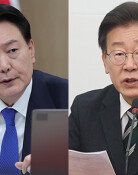Risks over Korea-China-Japan FTA
Risks over Korea-China-Japan FTA
Posted December. 01, 2020 07:44,
Updated December. 01, 2020 07:44
Chinese Foreign Minister Wang Yi, who recently visited Seoul and Tokyo, has proposed a push for a tripartite free trade agreement among the three neighboring countries of Asia. In a meeting with Korean Foreign Minister Kang Kyung-wha, Minister Wang Yi strongly proposed to establish a Korea-China-Japan FTA, and the same message was stressed during the meeting with his Japanese counterpart. “The three-party FTA will prove to be effective in complementing the lack of cooperative institutions in the North East Asian region,” argued the Chinese daily Global Times. Given the economic and diplomatic risks it entails, however, a tripartite trade deal must be approached with caution.
The first negotiation for a tri-party trade deal among Beijing, Seoul, and Tokyo, began in 2013, but there has been little progress owing to the differences of opinions in core agendas and their concomitant diplomatic disputes. Once the three Asian economic powerhouses, which take up 24% of global GDP, remove the barriers for their products and services, it will certainly galvanize economic growth, but it will also invite as much risk. As big manufacturers in the world, the three Asian neighbors share many overlapping sectors of export such as semi-conductors, cars, and steel. The FTA with China took effect in 2015, and for Seoul, if the market is pried open further, it might deal a heavy blow to its vital industries. In fact, this is why the tri-party FTA has failed to make meaningful progress despite the series of talks and negotiations.
The political and diplomatic implications should be taken into account as well. Behind Beijing’s proposal for regional cooperation and trade deals amid Washington’s power transition is China’s intention to keep in check America’s influence in North East Asia. History attests to the fact that the three neighbors’ attempt to seal a free trade deal has been gravely swayed by political and diplomatic factors such as Beijing’s Seoul-bashing over the installation of the THAAD system and the historical disputes between Korea and Japan.
In response, U.S. President-elect Joe Biden is proposing to hold a “Summit for Democracy.” During his campaign, Biden said the gathering will “bring together the world’s democracies to strengthen our democratic institutions, honestly confront nations that are backsliding,” and certainly there are signs that he is willing to put those words into action. Korea’s “strategic ambiguity” is being tested yet again between the growing pressure from America and China. Sandwiched between the two superpowers, Seoul must make a wise strategic choice for its own national interests.







